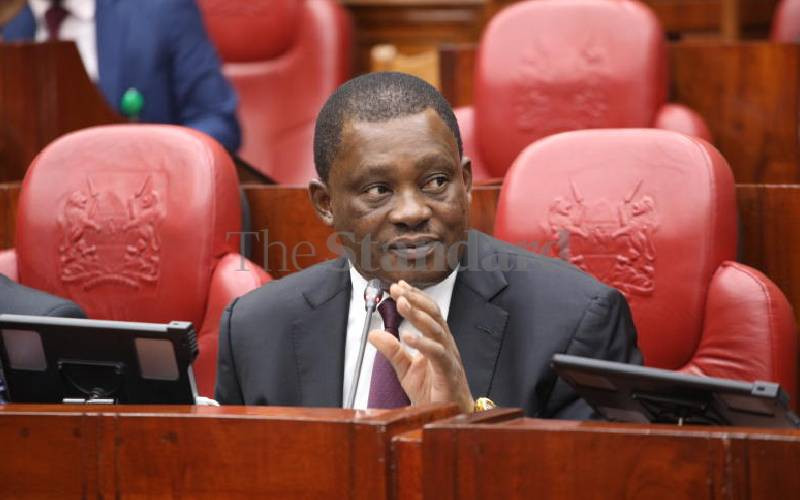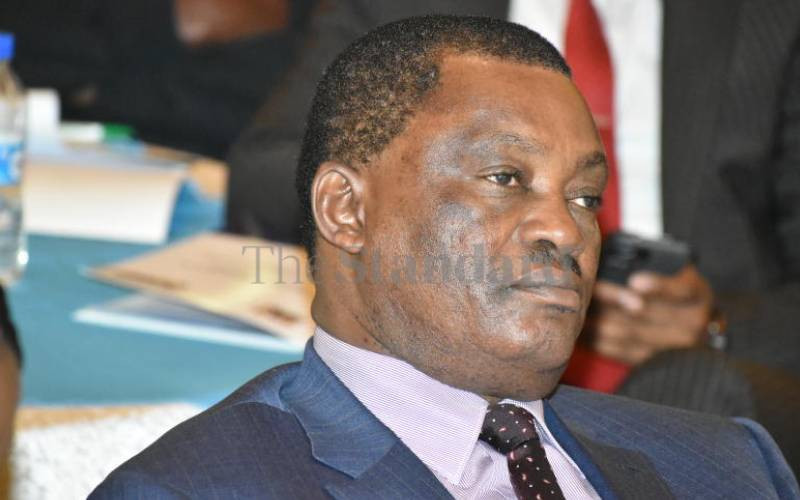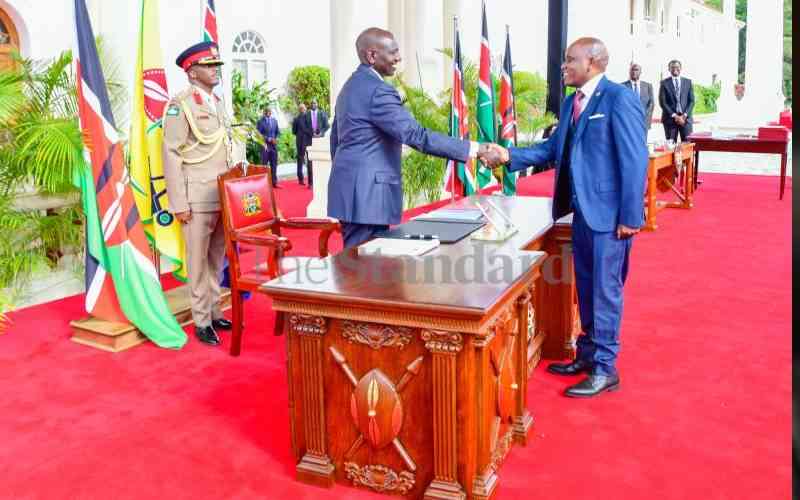NAIROBI: It has now emerged that a series of consultative meetings culminated in the drastic action by Speaker of the National Assembly Justin Muturi to halt the passage of the controversial Parliamentary Powers and Privileges Bill 2014.
Select leaders from the National Assembly met US Ambassador Robert Godec and discussed the controversy surrounding the law, whose clauses would impact the media by gagging them from covering MPs and parliamentary proceedings.
It could not be immediately established if President Obama sent a message through his top diplomat in Nairobi, but the visit to Parliament sent a strong signal that the White House was concerned with the developments that would roll back democratic gains.
Muturi said he met with Senate Majority Leader Kindiki Kithure and Minority Leader Moses Wetang’ula over the Bill and had to halt debate to save the National Assembly from embarrassment.
“I went out of my way to salvage the situation by halting the forwarding of the Bill to the Senate,” Muturi said, adding that he watched debate on the matter in disbelief from his office.
“I was forced to read to members Article 34 of Constitution which protects freedom and independence of media and I still urge members to see the light when they resume debate,” Muturi said.
“I asked members to clarify what is it they were doing that they don’t want the media to cover. On this Bill I am with the media fully but remember the decision will be made by members. I made commitment to the press and swore to protect Constitution. I am sure we will make progress,” Muturi added.
HOST OF ISSUES
The leadership of the National Assembly, among them Leader of Majority Aden Duale and the mover of the Bill Adan Keynan, were present at the meeting.
Duale later tweeted that the MPs discussed a host of issues with the ambassador and his team at the Thursday meeting. The law, as passed Wednesday, would serve to dent the Kenya Government’s image abroad and erode confidence built in the recent past which saw President Obama, Italian Premier Mateo Renzi and others visit Kenya.
But after the lunch meeting, gears changed. Keynan, in an interview Friday, said there was need for reason to prevail and urged journalists to tone down attacks and harsh criticism on individual MPs and return to the table for dialogue.
“The media need Parliament as a crucial partner and vice versa. Journalists should not use the Bill to start maligning MPs. It is only serving to poison the environment,” Keynan said.
The MP said he had lobbied MPs to remove offensive clauses but could not marshal enough support to expunge them on the floor of the House.
“I did my best but we still have an opportunity after the Speaker’s intervention. We ask media stakeholders to come back to the table for negotiations,” Keynan said.
Stay informed. Subscribe to our newsletter
At the core of the controversy is clause 34 of the Bill, which says: “A person commits offence if a) person publishes any false or scandalous libel on Parliament, its committees, or its proceeding; or b) speaks words defamatory of Parliament, its committees or its proceedings.”
The law of defamation is clear under the penal code and only individuals can be defamed not an institution like the National Assembly.
 The Standard Group Plc is a
multi-media organization with investments in media platforms spanning newspaper
print operations, television, radio broadcasting, digital and online services. The
Standard Group is recognized as a leading multi-media house in Kenya with a key
influence in matters of national and international interest.
The Standard Group Plc is a
multi-media organization with investments in media platforms spanning newspaper
print operations, television, radio broadcasting, digital and online services. The
Standard Group is recognized as a leading multi-media house in Kenya with a key
influence in matters of national and international interest.
 The Standard Group Plc is a
multi-media organization with investments in media platforms spanning newspaper
print operations, television, radio broadcasting, digital and online services. The
Standard Group is recognized as a leading multi-media house in Kenya with a key
influence in matters of national and international interest.
The Standard Group Plc is a
multi-media organization with investments in media platforms spanning newspaper
print operations, television, radio broadcasting, digital and online services. The
Standard Group is recognized as a leading multi-media house in Kenya with a key
influence in matters of national and international interest.








